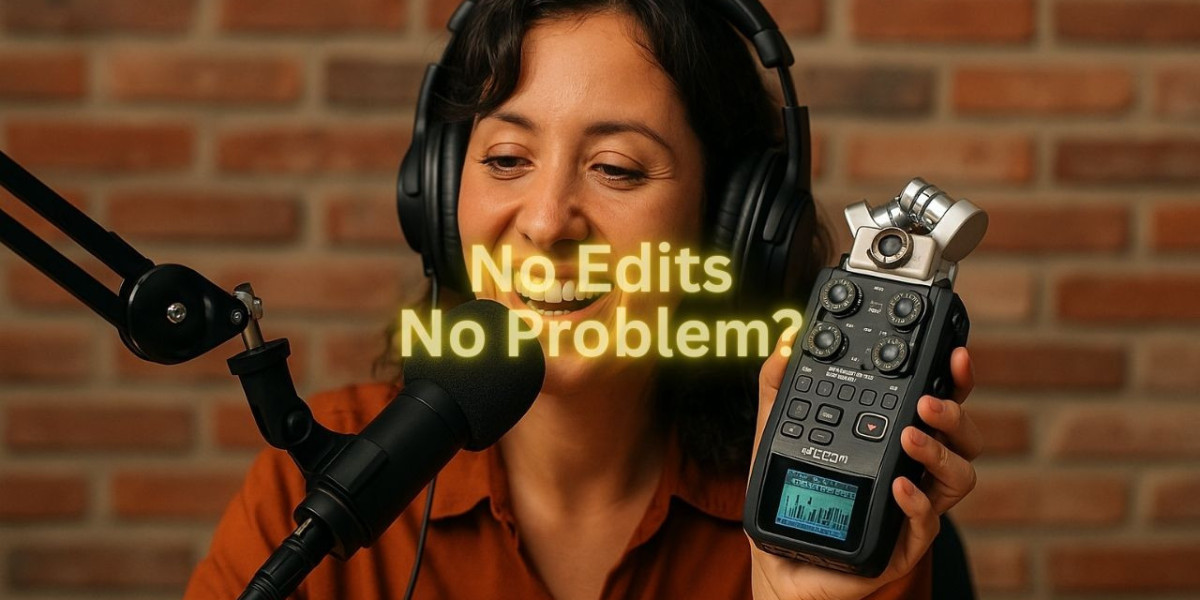This article contains affiliate links.
Lets talk about something that can stir up a little controversy in the podcasting world: not editing your podcast episodes.
Some podcasters proudly hit stop after recording and upload immediately. No edits. No polishing. Just raw, real, unfiltered content.
And heyif thats you, I see you. You're showing up. Youre creating. Youre consistent. And youre doing the most important thing of all: connecting with your audience.
But lets also be honest, from a place of love, your audience deserves your best. So if editing isnt in the cards right now (and there are legit reasons why: time, budget, burnout, or even a strategic choice), then its time to elevate in other ways.
This article isnt here to shame. Its here to empower. Ill walk you through:
- Why editing is valuable.
- Why skipping it might make sense for some.
- A step-by-step plan to add massive value to your showeven if you never edit a second of audio.
Why Editing Matters (But Isnt Everything)
Editing helps eliminate distractions. It tightens your message. It removes the ums, awkward pauses, tangents, and tech glitches that can cause listeners to drift.
In fact, studies cited by NPRs Podcast Start Up Guide suggest that up to 35% of your audience might tune out in the first five minutes if the content feels messy or hard to follow.
Editing enhances clarity, improves pacing, and builds credibility. And yes, that all adds up to better listener retention, which is gold in podcasting.
But that doesnt mean an unedited show cant be great.
Why Some Podcasters Skip Editing
Youre busy. Youre a solopreneur. Or maybe you believe your authenticity lies in the unfiltered delivery.
Heres where I agree with you: your voice, your truth, and your presence are more important than perfection.
Even Toby Goodman, in Narrow Podcasting, reminds us that podcasting isnt about vanity metrics or broad appealits about real relationships and laser-focused value.
So if editing feels like a barrier to creating, lets not remove your voice from the world. Lets remove the friction.
A Loving, Strategic Plan for Podcasters Who Dont Edit
Heres your action plancentered around intention, structure, and valueto keep your unedited podcast engaging and listener-focused:
1. Structure Is Your New Superpower
If you dont plan to edit, then plan before you press record.
- Create a segment-based outline:
- 🎙 Intro (who you are + what the episode is about)
- 💡 Main content (35 bullet points or lessons)
- 🔁 Recap
- 📣 Clear call to action
This structure gives rhythm and flowkey to listener retention. Bonus: it makes episodes easier to promote and repurpose.
Pro tip from Podcasting Like a Pro: Unless youre a veteran public speaker with a knack for ad-libbing, outlines and scripts are going to be your best friend for a while.
2. Choose Your EnergyEvery Time
Your voice is a mood-setter. Listeners will forgive a few stumbles if your energy is contagious.
Start each episode with intention:
- Stand or sit up straight.
- Smile when you speakit changes your tone.
- Visualize one listener and speak directly to them.
As Brian Colburn emphasizes in Podcast Mastery Minute, Your tone and presence are as important as your mic quality. If you cant edit, be deliberate in delivery.
3. Use a Repeatable Hook
Every episode should start strong. Develop a signature opening line or hook that grabs attention within the first 20 seconds.
Examples:
- Today Im giving you three tools to overcome creative burnoutbecause I just got through it myself.
- If youve been wondering how to land dream guests, Ive got a real-world story and a simple script you can use today.
Hooks keep listeners from drifting and help you stay focused, too.
4.Make Peace With Pauses
Dead air can be deadly, but silence, if used well, is a storytellers tool.
Practice intentional pauses to gather your thoughts. Better to pause than to ramble.
Record a few test monologues and listen back. Notice how small adjustments can make your delivery feel more polished, even unedited.
5.Give the Gift of Show Notes
If your audio isnt polished, your written summary becomes the hero.
Your show notes should:
- Summarize key takeaways.
- Include timestamps (if possible).
- Add any promised resources or links.
- Offer a call to action (e.g., subscribe, email, freebie).
From The Audience is Listening: Podcasts that grow do so by being intentionalnot just in sound, but in every listener touchpoint.
6. Ask for Feedback (and Use It!)
Let your listeners help shape your show. Create a feedback loop:
- Ask, Whats working for you? Whats not?
- Run a short listener survey.
- Listen for patterns in reviews and DMs.
If you're skipping editing, make audience connection your competitive advantage. That intimacy is something heavily produced shows often lose.
7. Batch Like a Boss
Plan to record 24 episodes in a session. This helps with momentum, consistency, and avoids rushed delivery.
Plus, if youre not editing, youll want to get your best takes without burning out.
Youre Still the Editor Of the Experience
Even if you dont cut tape or master audio levels, youre still editing. Every outline you build, every topic you choose, and every word you speak shapes the listener experience.
You dont need fancy tools to build trust and connection. You just need to show up with clarity, love, and intention.
So go aheadbe unedited.
But be unforgettable, too.
Ready to level up your unedited podcast with simple systems and soulful strategy? Id love to help you map out a listener-first content plan or co-create an irresistible structure for your show. Just say the word.
NPRs Podcast Start Up Guide - https://amzn.to/44h5WMW
Narrow Podcasting - https://amzn.to/3EAxnac
Podcasting Like a Pro - https://amzn.to/438paCm
Podcast Mastery Minute - https://pod.link/1743494068
The Audience is Listening - https://amzn.to/3GFvIAE
